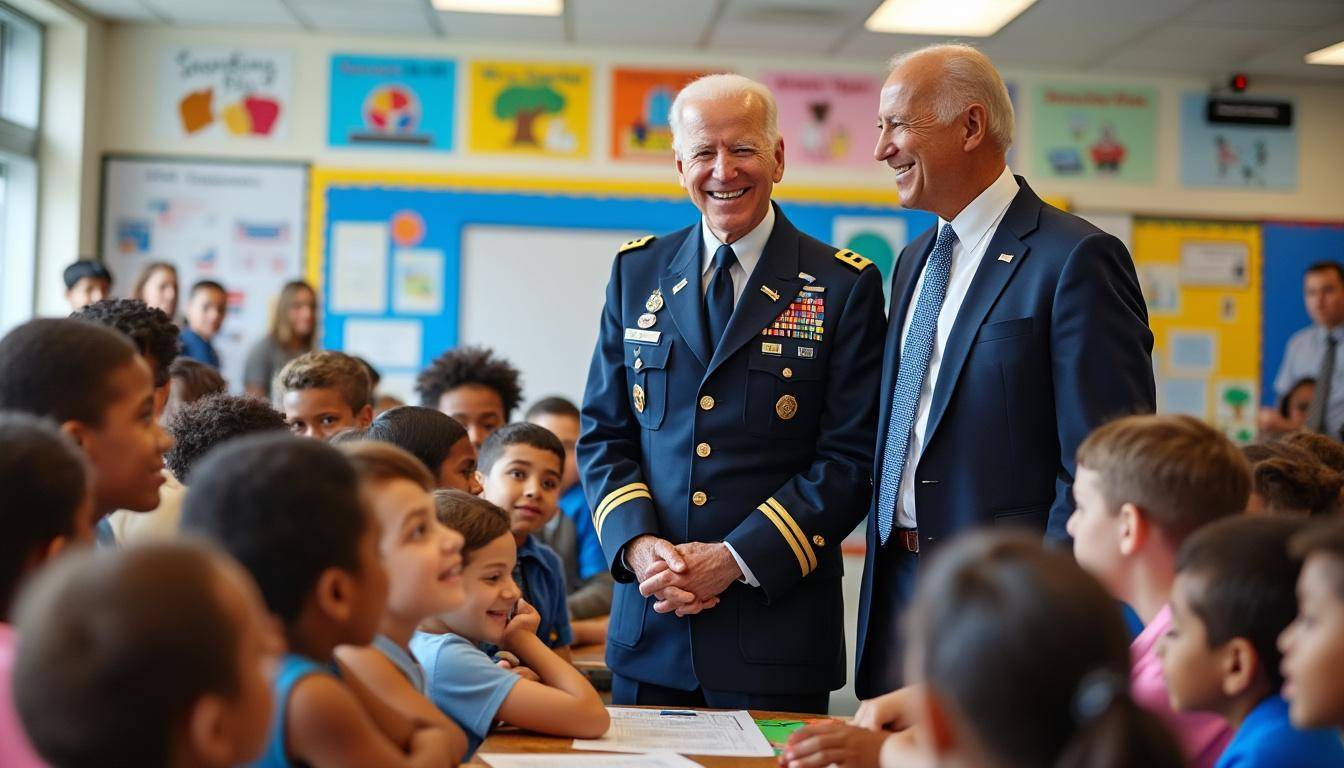In a milestone event highlighting the commitment to the well-being of military families, Dr. Jill Biden and General Raymond T. Odierno announced a critical educational achievement aimed at supporting military children. With over 100 colleges and universities joining a White House-led initiative, this program aspires to equip educators with the knowledge and skills necessary to address the unique challenges faced by students connected to the military community. This initiative forms part of the “Joining Forces” campaign, emphasizing the importance of creating supportive academic environments for children who frequently transition between school systems.
How Biden and Odierno’s Initiative Transforms Education for Military Children
The frequent school relocations experienced by military children—averaging six to nine moves during their academic careers—pose significant obstacles to academic progress and social stability. Recognizing these challenges, the “Operation Educate the Educators” initiative orchestrated by Dr. Biden and General Odierno seeks to prepare educators nationwide for these realities. Through participation by leading institutions such as George Mason University, this program embeds guiding principles within teacher preparation courses, facilitating partnerships with K-12 schools to smooth transitions for military-connected students.
- Comprehensive Teacher Training: Integrates specialized modules to prepare future teachers for military children’s unique social and academic needs.
- School Partnerships: Links higher education institutions with local schools serving military families for practical educator guidance.
- Community Collaboration: Involves Military Child Education Coalition and other organizations promoting social and emotional support frameworks.
- Focus on Resilience: Emphasizes nurturing military children’s adaptability and strengths despite frequent disruptions.
- Ongoing Research: Encourages continued study on the impact of mobility on child development and learning outcomes.
With this multifaceted approach, the initiative addresses both academic and social elements crucial for military children’s success in school. For further insight into tailored educational strategies, visit Education to the Top on strategic educational methods.
General Odierno’s Perspective: Experience and Commitment to Military Families’ Education
General Odierno, having witnessed firsthand the complexities of military family life through 24 relocations during his 36-year service, highlights the essential role schools play in these families’ lives. He underscored the resilience military children develop and credited supportive educators for nurturing this strength. According to Odierno, these children thrive when their educational experiences are rich and diverse, fostering social connections that counterbalance the disruptions caused by frequent moves.
- Military Liaison Officers: Deployed in schools to support military-connected students and families.
- Tutoring and Support Programs: Offered to help bridge educational gaps during transitions.
- Historical Commitment: U.S. Army’s legacy of educational support dating back to 1866.
- Focus on Social Integration: Recognizing the vital importance of emotional support along with academic achievement.
By highlighting the balance between academic preparation and socio-emotional well-being, Odierno draws attention to the holistic nature of child development within military education initiatives. Explore more about military educational support at Navy educational support resources.
Voices of Military Children: The Horan Twins’ Journey
The twins Felicity and Abigail Horan, now seventh graders, shared compelling stories of their own military childhood journeys during the event. Having attended five different schools due to eight military relocations, they articulated the emotional challenges of farewells and missed family moments. Yet, both emphasized that these experiences fostered personal growth and resilience rather than hardship.
- Frequent School Changes: Adjusting to new curricula and social circles regularly.
- Teacher Support: Impact of educators like Felicity’s third-grade teacher, who provided emotional reassurance during deployments.
- Developing Strength: Children’s ability to turn challenges into personal empowerment.
This firsthand narrative illustrates why educational achievements for military children require empathy, understanding, and dedicated support. For broader perspectives on child wellbeing and academic success, see the Youth Wellbeing Oversight Commission.
National Impact and Community Programs Supporting Military Families’ Children
The effort to better the educational outcomes for military children aligns with greater national movements to support veteran families comprehensively. Department of Defense collaborations with educational institutions and community organizations bolster these initiatives through programs fostering continuity, mentorship, and tailored resources.
- Joining Forces Campaign: Launched by Dr. Biden and Michelle Obama to enhance health, education, and employment for military families.
- AACTE and MCEC Collaboration: Ensuring teacher programs include specialized military family content.
- Community Engagement: Support networks addressing the specific cultural and social context of military families.
- Policy Development: Advocacy for educational policies that ease transitions and promote equity.
- Research and Funding: Initiatives like OMFA funding expanding educational access and support resources.
These comprehensive community programs illustrate the interconnectedness of education, family stability, and child development, emphasizing sustained support for veterans and their children. Discover how parenting strategies influence academic achievement in military families at Education to the Top on parenting strategies.


